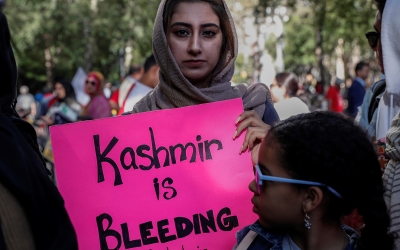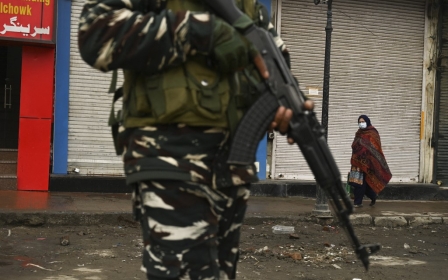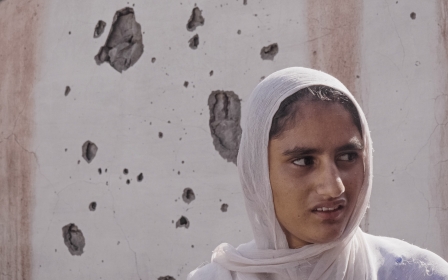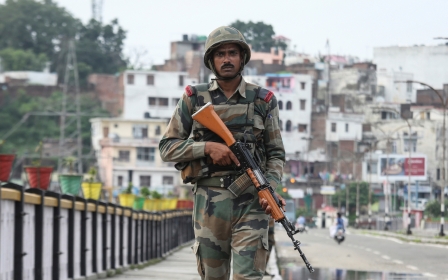The Kashmir Files: Bollywood blockbuster is a new low in anti-Muslim propaganda
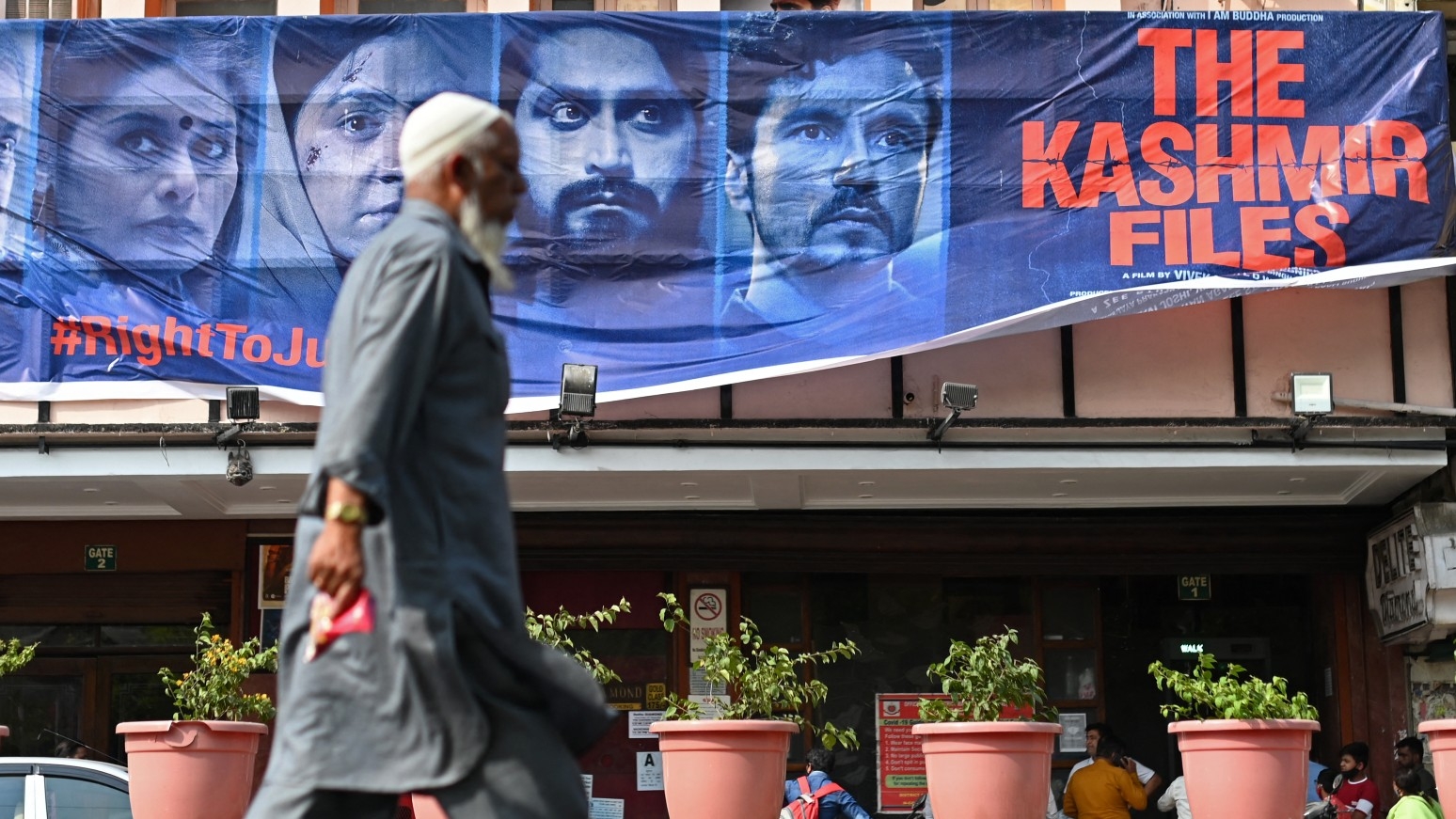
The latest blockbuster release from Bollywood, The Kashmir Files is racking up record box office sales as it purports to show how Kashmiri Pandits, who follow the Hindu religion, were systematically cleansed from the occupied Kashmir Valley by Muslims.
Except in true Bollywood style, the story isn’t remotely close to what actually happened. While sensationalism in films based on historic events is par for the course, The Kashmir Files comes with a lot of extra baggage, having been supported and promoted by India’s ruling BJP.
The exaggerated plot includes Hindu women being shot at point-blank range by bloodthirsty Muslims. Pakistan, the eternal enemy, lurks in the background, plotting and orchestrating events - a nod to the Hindutva fallback of placing blame for any of India’s misfortunes on its neighbour.
In the two decades following the start of the 1989 uprising by Kashmiri Pandits, an organisation representing them maintains that around 650 Pandits were killed. Police and government estimates are even lower, but as researcher Ashok Swain points out, The Kashmir Files suggests that thousands were killed.
At the same time, thousands of Kashmiri Muslims have been killed by Indian forces, with unmarked graves being discovered in villages across Kashmir. Many are portrayed as “militants” by the Indian state, which takes full advantage of the “war on terror” con to sell their brutality as defence against the “bad guys”.
Sinister ambitions
The Indian film industry is a behemoth, exceeding Hollywood ticket sales by more than a billion. At the same time, government and security agencies have a history of teaming up with or financing the fictionalisation of their most sinister ambitions. The level of dehumanisation that the silver screen can deliver is enormous.
Even in 1915, former US President Woodrow Wilson was aware of the power of film when he screened the racist movie The Birth of a Nation in the White House. Klansmen who terrorised Black Americans were cast as heroes, while white actors in blackface played the villains - a perverse role reversal. The film reinvigorated the Klu Klux Klan, launching a whole new chapter of lynchings and murders of Black people in the US.
Nazi Germany also produced a film personally commissioned by Adolf Hitler. Triumph of the Will, which chronicles the 1934 Nazi Party Congress in Nuremberg, attended by more than 700,000 supporters, is yet another example of what can happen when a top government official gives licence to notions of supremacy.
It is one thing to omit the achievements of an entire faith, and quite another to actively invent a narrative to justify draconian measures against its adherents
Last week, Indian Prime Minister Narendra Modi gave his personal stamp of approval to The Kashmir Files. The BJP has also sponsored screenings in India and abroad, keen no doubt to capitalise on anti-Muslim bias in the country. Meanwhile, social-media campaigns have urged Indians to watch the film “if they are interested in the future”.
It wasn’t always that ruling elites could use the film industry for their own purposes, as the Indian government found out when it attempted to utilise Kishore Kumar at the peak of his singing powers to promote former Prime Minister Indira Gandhi’s 20-point plan during a state of emergency declared in the 1970s.
But much has changed in the Hindi film industry, which has slowly and methodically turned Muslim characters and culture from being lauded as emperors and heroes into fundamentalists and terrorists. This latest film, which dehumanises Kashmiris by painting them as bloodthirsty killers, is arguably the most sinister portrayal so far.
According to a 2011 study that analysed the content of 50 Bollywood movies, around two-thirds gave an “unfavourable” representation of Muslims. The findings referenced a number of films in the late 1980s and 1990s in which Muslims were inevitably the baddies; in some cases, a love interest would have to choose between the man or the nation - the Indian version of “you’re either with us or with the terrorists”.
Draconian measures
The current state of affairs is a far cry from the Bollywood of seven decades ago, when Muslims in Hindi cinema broke new barriers through the epic tale of an under-appreciated singer in Mughal India. Mohammed Rafi’s singing from Baiju Bawra, known as the “mother of all musicals”, has remained a timeless reminder of an India where, despite the horrors of partition, Muslims could achieve dizzying heights of artistic expression and, up until the 80s, onscreen Muslim culture was lauded for its refinement and exemplary manners.
This is not to say that Bollywood’s depiction of Muslims as regal was always correct. As the late Indian actor Dilip Kumar once stated: “The outstanding achievements of Muslim philosophers, thinkers, scholars, scientists, artists and reformers have been underplayed.”
It is one thing to omit the achievements of an entire faith, and quite another to actively invent a narrative to justify draconian measures against its adherents, and possibly encourage further crackdowns.
Recent outbursts from cinema halls at the conclusion of The Kashmir Files, where right-wing Hindus have given speeches urging Hindu men to forcibly marry Muslim women and produce children with them in order to outnumber Muslims, suggests such horrors may not be far away.
The views expressed in this article belong to the author and do not necessarily reflect the editorial policy of Middle East Eye.
Middle East Eye propose une couverture et une analyse indépendantes et incomparables du Moyen-Orient, de l’Afrique du Nord et d’autres régions du monde. Pour en savoir plus sur la reprise de ce contenu et les frais qui s’appliquent, veuillez remplir ce formulaire [en anglais]. Pour en savoir plus sur MEE, cliquez ici [en anglais].



